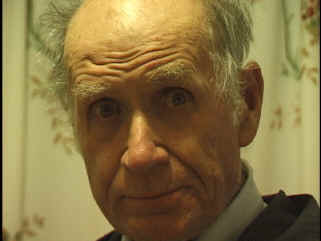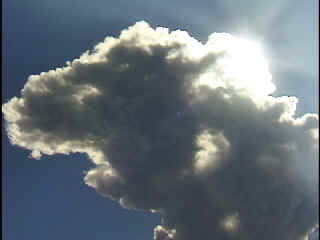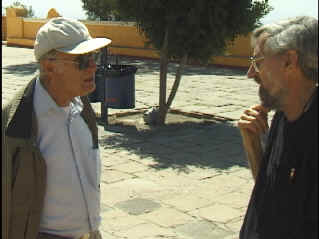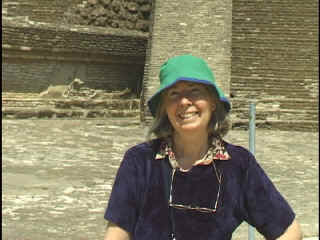An Interview with Joseph Ferraro on St. John of the Cross, Marx, and Catholic Social Doctrine

An Interview with Joseph Ferraro on St. John of the Cross, Marx, and Catholic Social Doctrine |
 |
| My name is Joseph Ferraro. I live in
Huejotzingo, Puebla, Mexico. I give classes at the Universidad Autónoma Metropolitana in
Mexico City teaching classes in sociology. I have certain lines of interest, one being the doctrine of St. John of the Cross. I find that current interpretations of St. John of the Cross do not agree with his basic doctrine. I have also investigated a dialogue between St. Thomas Aquinas and Marx showing Marx to a large extent is a continuation of the Aristotelian tradition, and as a result there is a possibility of a dialogue between Thomism and Marxism. At the same time I have been interested in the Council holding that the Council is explainable by social reasons and one does not have to go to the Holy Spirit. Yet the Council must be attributed within its historical context in order to be understood. 
The nearby volcano Popo explodes
In relation to John of the Cross my investigations have shown that from the 16th century on the Church begins a process of accommodating its teachings to the new society around it, and as a result the theologians discard mysticism as essential to the Christian life. This is not in agreement with St. John of the Cross; this is not in agreement with St. Thomas Aquinas; this is not in agreement with St. Augustine. In relation to the doctrine of Marx, what I have to take into consideration is that his major work, Capital, is not a deterministic work. Just as a chemist has to consider water in its pure state rather than taking various samples of water in nature and develop his laws of water in a pure state, Marx in Capital does the same thing in relation to the capitalist system, but he takes a pure form, and as a result there is nothing deterministic about it. But for the model he is using, yes, he comes to necessary laws, but the more reality is distant from this model, the less the laws are operative. And the more the reality comes closer, the more the laws are operative. Also there is a misconception in relation to Marx’s concept of property. Just as for the American Indians land was tribal, not to separate the members of the tribe from using it as their own, Marx conceived socialism in the same way, that is, that private productive property should be social for good reason, not to separate people from it, but so they can relate to it as their own, and as a result a product of their own. In relation to Vatican II I had stated that the Council cannot be interpreted outside of its historical situation. We find in the introductory message of the Council that two things are primary, the primary ends of the Council, peace and justice. Why peace and justice during an epoch when we saw the whole world was marching toward socialism? I think the answer should be obvious: stop socialist advance. And all of the changes which the Council realized are ordered to these ends. This is more or less admitted by John Paul II in his encyclical Solicitud res socialis. Someone might interpret my interest in Marx in the sense that I am a liberation theologian. This has already happened. However, my position differs from liberation theologians as far as the majority of them back Catholic social doctrine which holds that private property is a natural right. If we go back to the medieval tradition of St. Thomas Aquinas we find that private property is not a natural right, but the common use of goods is according to natural law, and that private property is only legitimate insofar as it helps the common use of goods. This is found also in John Locke, and is also found in Marx, so that to a large extent Marx is carrying on the Aristotelian and the medieval tradition. 
In relation to my interest in John of the Cross my investigation has indicated that when we talk of the elevation to the supernatural level the only true elevation has to do with infused contemplation. When the theologians talk about the elevation today they are using words without any content. The only true elevation is infused contemplation, and that our active life, our transformation of social structures, should be ordered to disposing us to the contemplative life so that there is very much a need to get back to John of the Cross, and very much a need to get back to St. Thomas and St. Augustine and all these traditions which we have lost. I have also done investigations of mysterium salutis which is one of the chief theologies of the Council, and I find that it is really an ad hoc theology written at a time when it seemed the whole world was going toward socialism, and the theology forgets essential Catholic doctrine as a means of trying to stimulate the laity to take part in the social transformation. For instance, they hold that God is active in history in the person of Jesus Christ, and that by coming down Christ was in solidarity with the workers and humanity, etc., but interpreted within the historical context. Again, it means He was really showing a solidarity to a particular social system which is the capitalist system. The theologians even go as far as calling into question something as fundamental as the immutability of God in order that we can see God in history and we can imitate His example. Formerly when I had talked about liberation theologians and backing Catholic social doctrine, I did not mean to imply that they are pro-capitalists in a conscious manner. I think they are people of good faith. I think they are heroic. Thank God for the Council and thank God for liberation theologians in their interest in the poor, but because they have an insufficient knowledge in what capitalism consists, they think they are against capitalism when they are really trying to save it. 
Holy Week festivities at Cholula
I have also discovered that various of my friends who are liberation theologians and for whom I have the deepest respect, they have really lost the faith. They have forgotten the essentials of the faith because of their dedication to the social apostolate. They have forgotten that not only by bread lives man. In relationship to John of the Cross I have written a book which is called Misticismo y Liberación del Pobre. This is really in a sense St. John of the Cross for Latin America and time and time again for the active life as a means of disposing for the contemplative life. In explaining John’s doctrine in this sense in showing at the same time for John of the Cross according to his principles, which is more important, contemplation is for everybody, for everyone who takes the means to get there. This led to further investigations. I thought that somebody could tell me, well perhaps this is St. John of the Cross, but this is not scriptural. As a result I did a work on the Gospel of St. John, which is called Misticismo y Compromiso en el Evangelio de San Juan showing that the Gospel of St. John is mystical, that St. John talks about eternal life, Christ in his Gospel defines eternal life as knowing the Father and the Son, but one cannot know the Father and the Son without having the experience of both. After that I thought, well good, somebody might tell me this is your personal interpretation of St. John. It’s not traditional. So I did another study on St. Augustine and St. Thomas, using their commentaries on the Gospel of St. John, and I found that my interpretation was lacking a tremendous amount in relation to these two authors. For them the Gospel of John was written for the purpose of leading us to infused contemplation. After this I thought that someone could tell me, well this may be St. John, but it is not the Synoptics. So I wrote another book on the Synoptics using St. Augustine and St. Thomas again, showing the Synoptics are also mystically oriented. And then finally I did another book on St. Paul thinking that someone would tell me, well good, this may be the Synoptics, this may be St. John, but it is not St. Paul. So I have two books written on that also. I think that the interest I’ve shown in mysticism indicates that the Church has lost something very essential. I have stated before that there is no elevation to the supernatural level without at least an instantaneous mystical experience, and I think if the Church is really going to have a major role in this world of change, it is going to have to come back to fundamentals which it has lost. The Church to a large extent right now is just part of the system. I think that we have to go back to our past, we have to go back to the Bible, we have to go back to our traditions in order to recapture just exactly in what the Christian life consists. To a large extent today theologians are holding that the Christian life is really nothing more than natural law, but grace supposes nature and builds upon it, so that the Catholic ethic is much more than natural law, and I can’t see that there can be a true transformation of social structure without knowing the end we are seeking, and the end we are seeking is so that Christians can become contemplatives, become mystics, and begin to enjoy the joys of eternal life in this life as a prelude towards enjoyment in the next life. 
Tyra at the ancient pyramid in Cholula |